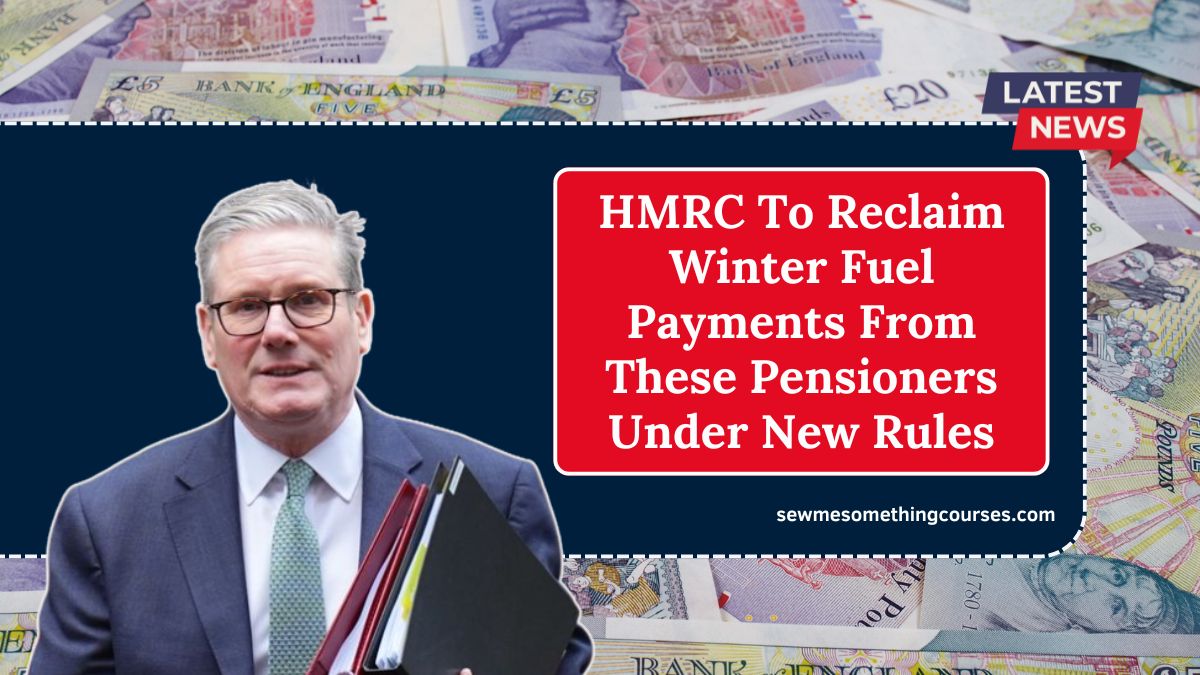In a major policy shift, the HMRC will now reclaim Winter Fuel Payments from certain pensioners under new rules. This change comes as part of a government U-turn that has shifted eligibility criteria for these payments, which are traditionally provided to help pensioners cover their heating costs during the winter months.
Previously, Winter Fuel Payments were universally available to all pensioners, but now, only about 75% of pensioners will receive these payments. Wealthier pensioners, with incomes exceeding £35,000, will no longer be eligible for this support, as it is deemed unnecessary for them.
While the new system aims to target those who truly need assistance, it also involves a process where payments are initially handed out to all pensioners and then reclaimed from the wealthiest during tax returns.
This new approach follows a series of policy changes after a controversial U-turn by Keir Starmer and growing concerns over fairness in the system.
New Rules for Winter Fuel Payments
The changes to Winter Fuel Payments are designed to target the assistance more effectively by focusing on those who need it most. The £300 payment, which has traditionally been available to all pensioners, will now be subject to income restrictions.
Here’s a summary of how the new system works:
| Income Level | Eligibility for Winter Fuel Payment | Details |
|---|---|---|
| Under £35,000 | Eligible for Winter Fuel Payment | Pensioners with lower incomes will receive the full £300. |
| Over £35,000 | Not eligible for Winter Fuel Payment | Wealthier pensioners will not receive the benefit. |
| Pensioners who have died | No Recovery of Payment from Estates | HMRC will not reclaim payments from the estates of deceased pensioners. |
This new system ensures that the Winter Fuel Payment reaches those who are most vulnerable, while excluding pensioners who are deemed financially capable of managing without this extra support.
The U-Turn and Its Impact
The government’s U-turn on this policy follows significant criticism and pressure from multiple sources, including the public and opposition leaders.
Last year, Keir Starmer announced a policy that would remove Winter Fuel Payments from a wide range of pensioners, including many who relied on it for basic heating costs. The removal of this payment from low-income pensioners created a backlash, with claims that the policy unfairly impacted the most vulnerable.
Following this backlash, Chancellor Rachel Reeves confirmed that the government would expand eligibility for Winter Fuel Payments to ensure that over 75% of pensioners in England and Wales would still receive the payments in Winter 2025.
In addition, HMRC confirmed that they would not reclaim payments from the estates of pensioners who have died, addressing concerns about potential negative press and avoiding further complications in the payments process.
Targeted Support and Fairness
While the government’s targeted Winter Fuel Payment system aims to provide assistance based on income, it also ensures that pensioners with low incomes will not miss out.
Rachel Reeves emphasized that the decision to target the payments was difficult, but necessary, given the financial challenges facing the country.
According to Ms. Reeves:
“Targeting Winter Fuel Payments was a tough decision, but the right decision because of the inheritance we had been left by the previous government. It is also right that we continue to means-test this payment so that it is targeted and fair, rather than restoring eligibility to everyone, including the wealthiest.”
This means-tested approach aims to create a fairer system by excluding wealthier pensioners, while still supporting those most in need.
The government’s goal is to ensure that lower-income pensioners will continue receiving financial support for their heating bills without the payments going to those who do not require assistance.
Real-Life Implications: Who Gets What?
For many pensioners, these changes will have real-life implications. For example, if a pensioner has a private income or substantial savings, they may no longer receive the £300 Winter Fuel Payment. However, pensioners with incomes under £35,000 will continue receiving the full benefit.
Let’s consider a few scenarios:
| Pensioner Scenario | Eligibility | Outcome |
|---|---|---|
| Pensioner with income of £30,000/year | Eligible for Winter Fuel Payment | Will receive the £300 payment for winter 2025. |
| Pensioner with income of £40,000/year | Not eligible for Winter Fuel Payment | Will not receive the £300 payment for winter 2025. |
| Pensioner with income of £35,000/year | Eligible for Winter Fuel Payment | Will receive the £300 payment for winter 2025. |
The changes to Winter Fuel Payments under the new rules for 2025 are a significant shift in how government support is allocated to pensioners.
The targeted approach, which limits eligibility based on income, ensures that financial support is directed where it is most needed, but it also comes with some challenges for pensioners with mixed incomes.
For many, these changes will offer fairer access to winter assistance, while preventing wealthier pensioners from receiving support they likely don’t need.
However, the reversal of the previous policy, which affected many low-income pensioners, is a relief, ensuring that a larger portion of the elderly population will benefit from this crucial winter support.
FAQs
Who is eligible for Winter Fuel Payments in 2025?
Pensioners with incomes under £35,000 are eligible for the full £300 Winter Fuel Payment.
Will HMRC reclaim Winter Fuel Payments from the estates of deceased pensioners?
No, HMRC will not reclaim Winter Fuel Payments from the estates of pensioners who have died.
How does the new targeted Winter Fuel Payment system work?
Pensioners with low incomes receive the full payment, while wealthier pensioners with incomes over £35,000 do not. The payments are initially given to all, with the wealthiest reclaimed during tax returns.

